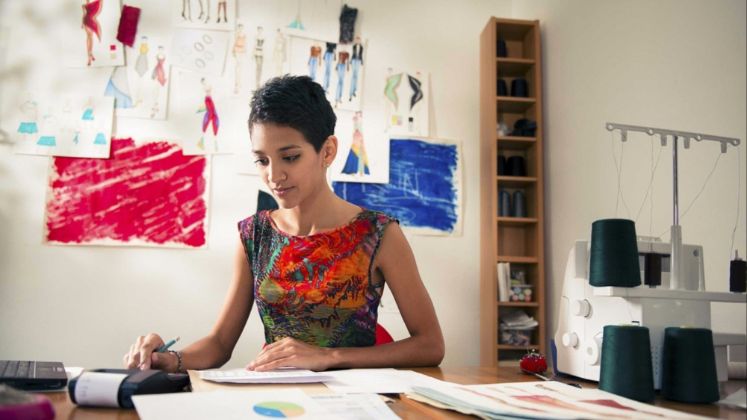In the past decade, the Indian fashion industry witnessed a profound shift propelled by the rise of start-ups. From technological integration to innovative products and sustainable contributions, start-ups have reshaped the landscape. Global investors, recognising India’s potential, have poured over US $ 6 billion into these ventures. Despite market fluctuations, these start-ups are thriving, signalling a promising future. Notably, government bodies, celebrities and business magnates have joined forces to champion and invest in these ventures. In our upcoming January issue, Apparel Online will delve into this dynamic ecosystem, featuring valuable insights from start-ups, investors and experts. In this article, we explore the start-up scene in India, their success strategies to raise capital, their mantra for survival and many more. Stay tuned for a comprehensive Cover Story on this thriving industry!
Tracing the Evolution of Fashion Start-ups
The start-up wave in India, particularly in the fashion world, took root around 2006-07 with the inception of Myntra. This period also saw the formation of other major players like Flipkart and Snapdeal. The journey continued with notable milestones, including the founding of Zivame in 2011 and Nykaa, the country’s first woman-led unicorn, in 2012. Consequently, a plethora of start-ups, both large and medium-sized, have emerged in the fashion sector. Notable figures like Abhishek Ganguly, former MD of Puma India, have ventured into entrepreneurship, raising significant funding for their initiatives. According to the Department for Promotion of Industry and Internal Trade (DPIIT), the fashion start-up domain encompasses 1,279 start-ups, indicating a glorious future for this industry.
Diverse Categories in the Fashion Start-up Ecosystem
Fashion start-ups in India exhibit diversity in scale, expertise and strengths, attracting consumers with unique value propositions. They typically fall into four main categories—technology-driven start-ups, direct-to-consumer (D2C) brands, those focusing on innovation and business-to-business (B2B) marketplaces—each experiencing substantial growth.
These start-ups leverage advanced technologies like AI not only to sell products online but also to enhance customer understanding, increase sales, optimise product assortments and ensure timely and cost-effective delivery. Meesho and Myntra stand out as leading players in this sphere.
India boasts thousands of D2C start-ups in the fashion segment, with a potential to grow to US $ 43.2 billion by 2025. Brands like Bombay Shirt Company, Blissclub, The Souled Store, FableStreet, FabAlley and Bewakoof.com are amongst the prominent names propelling the growth of this sector.
Start-ups like XYXX, DaMENSCH, Zymrat, Bummer and Almo distinguish themselves through specific product innovations, particularly in categories like men’s innerwear and athleisure. Innovations often centre around raw materials and technological advancements, ensuring comfort and enhanced performance. For example, Bummer, an Ahmedabad-based start-up which also got funding in famous reality show Shark Tank India, focuses on modal fabric with softness, funky designs, bold prints, bold design in men’s undergarments.
A crucial segment within Indian fashion start-ups, B2B marketplaces connect stakeholders across the textile supply chain. ReshaMandi, Moglix, Zilingo and Fashionza are prominent names in this space, facilitating transactions beyond India’s borders.
There are few other interesting start-ups for textiles like Textile Genesis (acquired by Lectra) which is a pioneering traceability platform custom-built for the textile ecosystem. C2C fashion re-commerce platform CoutLoot is also a well-recognised start-up.
Attracting a Spectrum of Investors
The Indian fashion start-up sector has successfully attracted a spectrum of investors, ranging from global funding giants to individual investors with limited funds. Top start-ups like Meesho and Myntra have secured investments from renowned entities such as SoftBank, Peak XV, Fidelity Investments, Prosus & Naspers and Meta, amongst others. Investors like Eight Roads Ventures, Elevation Capital, Sixth Sense Ventures and Matrix Partners have also played a significant role in supporting various fashion start-ups, including D2C brands.
In addition to financial backing, the sector has witnessed participation from individuals closely associated with the fashion industry, such as Harmeet Bajaj (Founding Member of NIFT); Vineet Gautam, CEO of Bestseller; former Myntra CEO Amar Nagaram; fashion influencer Masoom Minawala. Celebrities like Indian cricketer KL Rahul and actress Sara Ali Khan have also invested in fashion start-ups like XYXX and The Souled Store respectively.
These investors have a tilt towards investing in tech-based and innovative product start-ups due to their technological edge and unique product differentiation. Start-ups primarily allocate their funding towards cultivating an omnichannel strategy, research and development, product enhancement and team expansion.
The reality show Shark Tank India has proven instrumental in creating awareness for emerging start-ups, even if they didn’t secure funding from the show. The exposure has positively impacted sales for many, showcasing the significance of such platforms in the start-up ecosystem.
Continuous Trend of Acquisitions
The start-up landscape in India, particularly in fashion, has seen a continuous trend of acquisitions. Notable instances include Myntra’s acquisition by Flipkart in 2014. Reliance, one of India’s top corporate entities, has acquired established start-ups such as Clovia and Zivame, both renowned for lingerie and secured a 51 per cent stake in Ed-a-Mamma, a kidswear and maternitywear brand founded by actress Alia Bhatt.
The success of D2C brands segment attracted fashion and business conglomerate Aditya Birla Group and it started TMRW House of Brands that has invested heavily in D2C brands like Bewakoof.com (Rs. 200 crore), The Indian Garage Co (Rs.155 crore), Berrylush, Juneberry, Natilene, Nauti Nati and Nobero, to mention a few.
In a recent development, Styched acquired Flatheads, a D2C sneaker start-up and Zymrat.
In summary, the Indian fashion start-up industry reflects dynamism marked by innovation, diverse categories and a wide spectrum of investors.








